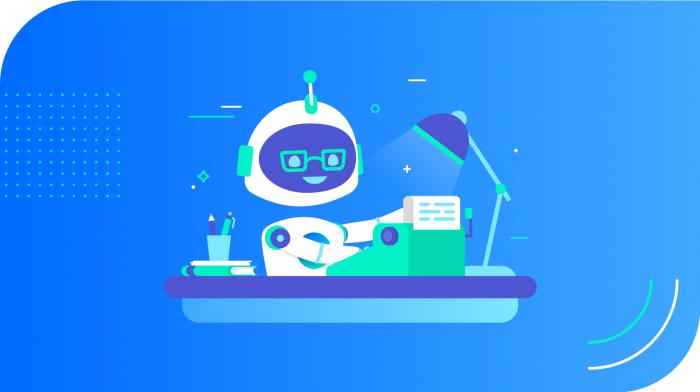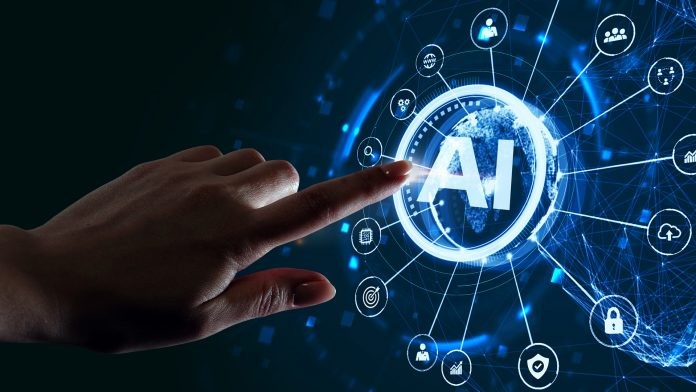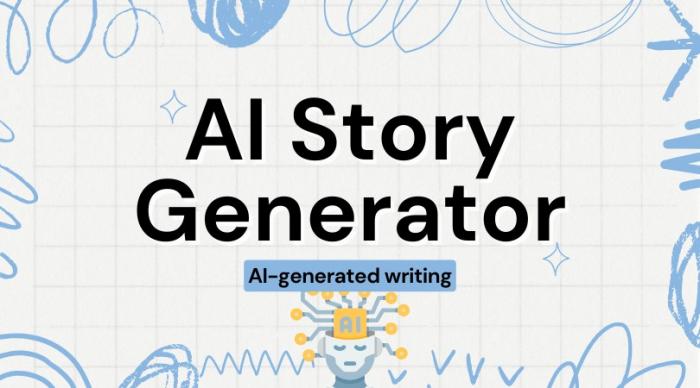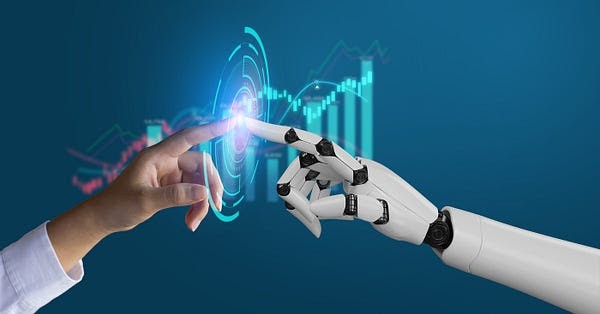How to use AI Story Generator? Exploring of the Future of AI Writing
What is AI-generated writing?
Artificial intelligence writing is the output of computer software utilizing artificial intelligence through an algorithm. This requires the integration of natural language processing, machine learning, and deep learning methodologies toward analyzing big data to create a piece of text that imitates human writing.
AI writing and AI story generator have gained much popularity these days because of the aim to change totally how content is made and consumed. Whether it is a news article, product description, social media post, or even a full novel, there have been promising results for AI-generated writing in pretty much every field. For a deeper dive into how these tools are shaping the future of storytelling, you can check out this detailed guide on AI Story Generator and the future of AI writing.
The idea of AI writing seems modern, but actually it’s been there for years. Simple poetry written by computers and random sentence makers were used to push the boundaries of initial computer technologies.

Nowadays, with better tools and convenient methods to get amounts of data, AI writing has turned much wiser and fancier.
One of the important advantage of AI writing is the ability to generate large volumes of content within a short period(A month's workload may be reduced to one minute!).
This will be useful in sectors like journalism, marketing, and any other sector where content needs to be regularly updated. That means, actually, every area will use AI.
What's more, AI writing can lower the costs of content creation and raise the output level, in order to provide writers with more concentration on more creative work.
However, the major disadvantage of AI writers is that the text may not be very original and creative(That is because AI generate works from learning former achivements).
The emotions and experiences of humans cannot be surpassed by any AI algorithm in depth and complexity, on the other words, it can only analyze and replicate writing styles.
Moreover, the output of such an AI writer may contain all biases and stereotypes present in the training data used to develop the algorithms.
To sum up, well AI writing happens to be a rather burgeoning field which writes not just has the potential but also aims to transform the very content production and consumption processes. You need to realize that it is something that helps you but not instead you.
So, Its benefits and drawbacks are still developing and playing an increasingly integral role in the future of writing
The History of AI in Writing
Artificial intelligence, or writing through AI, dates back to the 1950s with the emergence of early developments. However, significant breakthroughs relating to AI in written content creation happened in the 1990s.
A program named RACTER was released in 1993. It used an expert system for generating poetry and short stories. The output of RACTER was not perfect but impressive enough that it could be published in several literary magazines.
In the ensuing years, scholars strove to perfect AI writing systems, culminating in programs like BRUTUS and Jabberwacky.

The real transformation in AI writing came about in the middling years of the 2010s when a neural construct entitled "The Blog Bot" was engineered. This entity could compose blog entries spontaneously on any subject, having scrutinized and digested pre-existing material.
Since then, the writing of AI has advanced so much with companies like OpenAI and GPT-3 leading the cause. These systems apply deep learning methods in generating text that is similar to that of humans making it almost impossible to tell the difference between content generated by AI and that written by a human being.
There are limitations to the writing of AI. For example, it can generate content well based on data already available but cannot create truly original work. Further, the content generated by AI may sometimes lack emotional depth and human experience.
But, the power for AI-made writing is great, with some authorities guessing that it could change the publishing market. As AI tools keep growing and getting better, it will be interesting to watch how they form what comes next in writing.
Benefits and drawbacks of AI Story Generator
Artificial Intelligence (AI) has infiltrated various industries, including the writing sector. With the development of Natural Language Processing (NLP), AI has been able to generate human-like language, leading to the emergence of AI Story Generator.

One significant benefit of AI Story Generator is their capability to produce large amounts of content quickly and accurately. This can be useful in the creation of informational or news articles where speed and accuracy are critical. Additionally, AI Story Generator eliminate human error and bias, ensuring that the output is consistent and objective.
Another advantage of AI Story Generator is their cost-effectiveness.
Hiring human writers can be very expensive, especially for organizations where constant content creation is mandatory. AI Story Generator becomes the cheaper option and maintains quality and relevance.
There are demerits to AI Story Generator as well. The major one is that AI Story Generator lacks creativity and personality which holds human stories together. Unique tone and style can never be replicated by AI, human writers bring unto the table emotional intelligence which AI lacks.
Another issue is plagiarism and copying. If not well-set, the AI uses past work to create content and can give out the same info without mentioning source or place of work.
Ultimately, the use of AI Story Generator might stunt human writing growth and creativity. If companies apply all content from AI, there may come a time when human writers are removed; this will bring down the level of writing quality and originality.AI Story Generator helps in writing stories at a faster pace, more accurately, and cheap.It does not mean that creativity is not involved; there are many ethical considerations.To ensure quality content of diverse dimensions in the future, an appropriate mix of AI-generated and human-written content should be worked out. AI Story Generator helps in writing stories at a faster pace. This is part of a broader trend in which AI tools are used to enhance content creation, much like how AI-powered video tools are improving media quality across industries.
How AI affects the creative process of writing
Artificial intelligence, particularly in the writing spectrum, has had penetrative growth. With natural language processing and machine learning developing wings, AI now serves as an assistant to writers where they can streamline their creative process through it and generate high-quality content in much lesser time. It thus raises the question of what impact AI writing would have on the creative process of writing.
One of the most major ways in which AI impacts the creative process of writing is by feeding new sources of inspiration to the writers. AI-algorithms, carrying out an analysis on a huge volume of data, can themselves generate ideas based on patterns and trends. This will help to overcome writer's block and find new angles to explore in the writing.
Further, AI may help in the editing too by fully spotting places where the author needs to make work better.
Let's give a situation: AI can find grammar mistakes and offer the best word choices, even generate the extra style and words in your writing. But is argued that using AI can also lead to a limitation in creativity - while people's brind are more unpredictable, and AI may lacks the real human experience and emotion.
There cannot be any real uniqueness and originalness put into content to reflect relationship dynamics or human experiences.
In addition, Artificial Intelligence writing might produce a uniformity of styles because the algorithms will prefer the fashionable ones over more niche or experimental styles. This would mean loss of diversity in literature and range of voices represented in writing.
Though there are such concerns, a major set of writers is welcoming AI as a tool for the betterment of their writing process. With the amalgamation of the analytical ability of AI and the creativity plus imagination of humans, it assures content that is unique but also very efficient.
AI vs. Human Writers: Who's Better?

The age-old question of "man versus machine" has been a topic of debate for centuries, and writing is no exception. With advancements in AI technology, it's becoming increasingly common to see AI Story Generator in the literary world. But can AI really replace human writers? Let's dive deeper into the debate.
The Advantages of AI-Generated Writing
One of the primary advantages of AI-generated writing is its speed and efficiency. Unlike humans, AI algorithms can generate thousands of words within minutes, making it an attractive option for publishers with tight deadlines. Additionally, AI writers don't suffer from writer's block or burnout, which can be crippling for human writers.
Another advantage is consistency. AI-generated writing has a consistent quality, tone, and style, which makes it ideal for technical writing or content that requires a straightforward, objective approach. In contrast, humans may have inconsistent writing styles, making it harder to maintain consistency across long-form content.
The Power of Human Creativity
That whole "robots vs writers" debate? It’s like arguing whether microwave meals can replace grandma’s cooking. Sure, AI tools can spit out words faster than a kid blasting through TikTok – perfect for cranking out manuals or product descriptions before deadlines hit. For instance, apps like CapCut demonstrate how AI editing tools can assist creators in producing polished multimedia content quickly. No creative blocks, no all-night coffee crashes. But let’s get real: ever tried reading an AI-generated love scene? It’s about as romantic as a tax form.
Note: UniFab Smoother AI is designed to raise frame rate and ensure a smoother motion progression, especially ideal for fast-moving objects or scenes. Utilize UniFab Smoother AI to reduce flickering and jittering, presenting a more natural outcome for an optimal visual experience.
Finding a Balance between AI story generator and human writing
Here’s what I’ve seen working at a small publishing house: Our AI churns out first drafts for dry topics like printer manuals. Saves our human team hours. But when we tried using it for memoir pitches? Disaster. The algorithm turned a veteran’s war story into something that read like IKEA assembly instructions. Had to bring in a 68-year-old editor who actually served in ’Nam to fix it – his version made readers cry actual tears.
The cold truth? AI’s great at the boring stuff. It keeps tone steady through 50-page reports like a metronome. Humans? We’re messy. We accidentally let slang slip into legal docs or get poetic describing coffee beans. But that’s exactly why the bakery down my street tripled sales – their “About Us” page wasn’t written by some bot spouting “artisanal excellence.” Instead, they used tools like Copy AI to support, not replace, their human storytelling, blending automation with authenticity. It was the owner’s story about burning her first wedding cake order, complete with fire department cameo.
As for those flashy AI novels and movie scripts? They’re like those realistic robot dogs – impressive tech, but you’d never confuse them with the real thing. Take that AI-generated Beatles-style song. Catchy tune, zero backstage drama. No broken guitar strings, no band fights over chord progressions. Just a perfect emptiness.
Smart teams aren’t picking sides. They’re using AI like a sous-chef – let it chop the veggies (research, formatting) while humans handle the spice (jokes that land, quiet moments that punch guts). My local paper does this right: bots summarize city budget meetings, freeing reporters to chase stories about the taco truck guy who fixes skateboards for teens.
The future’s not about replacement. It’s about letting machines do what they’re good at (speed, sameness) so we can do what we’re good at – turning life’s weird, wonderful mess into stories that stick to your ribs.
Examples of Successful AI Story Generator
AI writing has been imroved so much since it start. Nowadays, many great examples of successful AI Story Generator show the ability of this AI-tech in the creative field.
one of the example is "The Policeman's Beard is Half Constructed," an AI novel generated by a group from the University of Oslo. The plot, which tracks a murder investigation carried out by a detective, Well it is quite compelling and actually shows through demo such further ability of AI to generate narratives that are coherent and well-structured.
Another remarkable instance is "Sunspring," a short film that has been completely authored by an AI called Benjamin. The movie, which had its debut at the Sci-Fi London Film Festival, showcases a grim future where humans find it hard to survive within adversarial surroundings. Even though it has been fully produced by an AI, the movie succeeds in transmitting feelings and suspense that is comparable to that of human-written scripts.
In the music trade, AI has further advanced with creations like "Daddy's Car" by Flow Machines; this was made using artificial intelligence. The track emulates the style of The Beatles and it is new AI shows how old works can be made into new works while artists pay homage to their influences.
These examples show what AI can do to make good creative works, but they also raise questions about the place of human makers in the making process. While AI Story Generator shows a lot of benefits, there are still many argues indicating that they lack the feelings and personal style compare with humans.
Thinking about these worries and conplains, Something cannot be ignored is that AI Story Generator is becoming a big role in the future of writing and publishing. With the growth of AI, we are willing to see more and more fantastic story which written by AI, and have a glimpse of glamor of these tech.
How AI Story Generator could change the publishing industry
Artificial intelligence has revolutionized several industries, and publishing is no exception. With advancements in Natural Language Processing (NLP) technology, AI Story Generator are becoming more prevalent. These stories may not only change the way we read but also how we produce and distribute written content.
One of the biggest advantages of AI Story Generator is their speed and scalability. AI algorithms can churn out multiple stories in a matter of minutes, freeing up time for human writers to focus on more complex and creative tasks. This efficiency can also lead to cost savings for publishers who can produce more content with fewer resources.
AI Story Generator also have the potential to personalize content for individual readers. By analyzing reader data, such as browsing history and preferences, AI algorithms can generate stories tailored to specific interests. This personalization could lead to higher engagement levels among readers and ultimately increase revenue streams for publishers.
However, there are also potential drawbacks to consider. AI Story Generator may lack the emotional depth and creativity that human writers can provide. They may also struggle to capture the nuances of human interactions and emotions, leading to narratives that feel robotic or formulaic.
Despite these limitations, some publishers have already embraced AI Story Generator. For example, the Associated Press uses an algorithm called Automated Insights to generate financial reports, while OpenAI’s GPT-3 language model can produce coherent and human-like text.
In the future, AI Story Generator could have a significant impact on the publishing industry. For instance, publishers may use AI to identify popular themes and storylines, giving them insights into reader preferences. Additionally, AI Story Generator could help publishers target new markets and audiences, opening up opportunities for growth and expansion.
As with any emerging technology, there are ethical implications to consider. For example, who owns the rights to an AI-generated story? How can we ensure that AI-generated content is not biased or discriminatory? These questions will need to be addressed as AI Story Generator become more prevalent in the publishing industry.
In conclusion, AI Story Generator have the potential to change the publishing industry in significant ways. While there are both benefits and drawbacks to consider, it is clear that AI technology will continue to play an increasingly important role in the creation and distribution of written content. As the technology evolves and improves, we may see new and exciting possibilities emerge for writers, publishers, and readers alike.
Moreover, if you're looking to gain inspiration for your writing, consider exploring platforms like Inferkit for innovative prompts and ideas.
The ethical implications of using AI in writing
The use of artificial intelligence (AI) in writing has raised several ethical concerns, particularly regarding the authenticity and originality of content. With AI generating large volumes of content in a short amount of time, it's easy to see how this could lead to plagiarism issues. Additionally, there are concerns about transparency and disclosure surrounding the creation of AI-generated content.
One significant ethical concern is the question of authorship. Who should be credited as the author of an AI-generated story? Is it the developer who created the algorithm, the person who trained the machine learning model, or the user who inputs the prompts that guide the AI's output? This issue raises questions about intellectual property rights and recognition for creative work.
Another issue is the potential for bias in AI-generated content. The algorithms used to train AI models are only as unbiased as the data they're fed, meaning that any biases present in the training data can be reflected in the content generated by the AI. This could perpetuate harmful stereotypes or reinforce existing inequalities in society.
Furthermore, the widespread adoption of AI-generated content could have negative effects on human writers and their livelihoods. As more companies turn to AI to produce content, there may be less demand for human writers, leading to fewer opportunities for those in the industry.
Overall, it's clear that the use of AI in writing raises complex ethical questions that must be addressed. As AI continues to advance, it will be important to establish regulations and guidelines around its use in creative pursuits to ensure that ethical standards are met.
Predictions for the future of AI Story Generator
As AI continues to advance, we can expect to see more sophisticated and nuanced AI Story Generator. In the near future, we may see AI Story Generator that are difficult to distinguish from human-written ones. This technology will allow for an even wider range of stories and genres to be produced with lightning speed and at a fraction of the cost of traditional writing.
AI could also help eliminate the issue of writer's block by generating ideas and writing prompts for human writers. This could lead to a more collaborative approach to storytelling, where AI and human writers work together to create engaging and captivating stories.
Another potential development is the creation of interactive and personalized stories that adapt to the reader's preferences and choices. This could revolutionize the way we consume stories, as each reader would have a unique experience tailored to their interests and tastes.
However, there are also concerns about the impact of AI Story Generator on the publishing industry. As AI becomes more advanced and capable of producing high-quality content, it could put many writers out of work or drastically reduce the number of writers needed in certain areas.
Furthermore, the ethical implications of using AI in writing must be considered. For example, who owns the copyright to AI Story Generator, and how can we ensure that these stories are not plagiarizing existing works?
Overall, the future of AI Story Generator is promising but also complex and uncertain. As technology advances and new developments arise, it will be crucial to continue exploring the benefits and drawbacks of AI in writing.